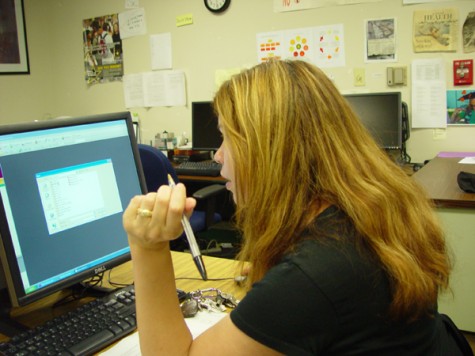Imagine studying in a land of the glimmering Baja waters, swimming side by side with whale sharks and spending everyday class in the ocean.
Now believe it.
Thirty-five years ago the hands-on Baja Field Studies program started showing GCC students a new world of marine biology, field biology and marine mammals, and continue to do so today.
“It changes [the students’] lives. Many of them want to come back,” said marine biology Professor Javier Gago, who has been involved with the Baja Studies Program since 1987 and is now co-director.
The program is a study abroad trip that enables students of almost any academic background to join together and gain a one-on-one experience with a complicated and natural environment mixed in with Mexican culture.
Whether it’s the hands on action, or the better attention the small groups get (20 to 24 people is the usual amount), Gago said the students perform better in Baja.
“I get mostly A’s, B’s, some C’s, and even some D’s, but I don’t think I’ve ever had a student who got an F,” said Gago.
The real exciting moments on the trips are when the students get to come face-to face with whale sharks. “Seeing the 30 foot [sharks] right next to you, now that’s pretty amazing,” said Gago.
The Baja Studies program has a brand new field station that was added. Here the students of all Baja class offerings will stay.
“It’s absolutely beautiful. They really put a lot of hard work and effort into it,” said Gago.
The other co-director of the Baja Studies program is Dr. Maria Kretzmann, who agreed with Gago about the new station’s beauty. “It’s a really nice escape from Los Angeles. I feel that the students can really focus here.”
The station took a few years to build but was well worth the wait, according to Kretzmann. “The old station was in a much smaller building in town, where as the new one is about a mile out of town with a lot more space,” she said.
The program offers classes in the winter and summer sessions, and range from either a few weeks to a month in Baja, depending on the course.
The course offered for winter 2010 is Biology 146: Marine Mammals, taught by Kretzmann. Students will be on campus from Jan. 25 to 27. The dates at the field station are Jan. 28 to Feb. 5.
The price is $375 for two units. Description of the course includes identification, classification, ecology, anatomy and behavior of mammals, and is CSU transferable.
Four classes are offered during next year’s summer sessions, which include Biology 125 and 126 (Marine Biology) taught by Gago. The cost is $785. Dates are yet to be determined, but the classes start at the beginning of the summer session. Two weeks are spent at the college and two weeks are at the Field Station in Baja. These courses look at the diversity of marine life and the ecology of the oceans.
The cost of these classes is $795. The units add up to one for Biology 39, and two units for Biology 131. Date for these courses are still to be determined.
Gago advised students to talk to a professor who is teaching the course before signing up for the program so they can be prepared for what to take in Baja.
It is recommended to sign up several months before hand to insure a spot. For more info on the courses, locations and instructors go to Glendale.edu/baja.

